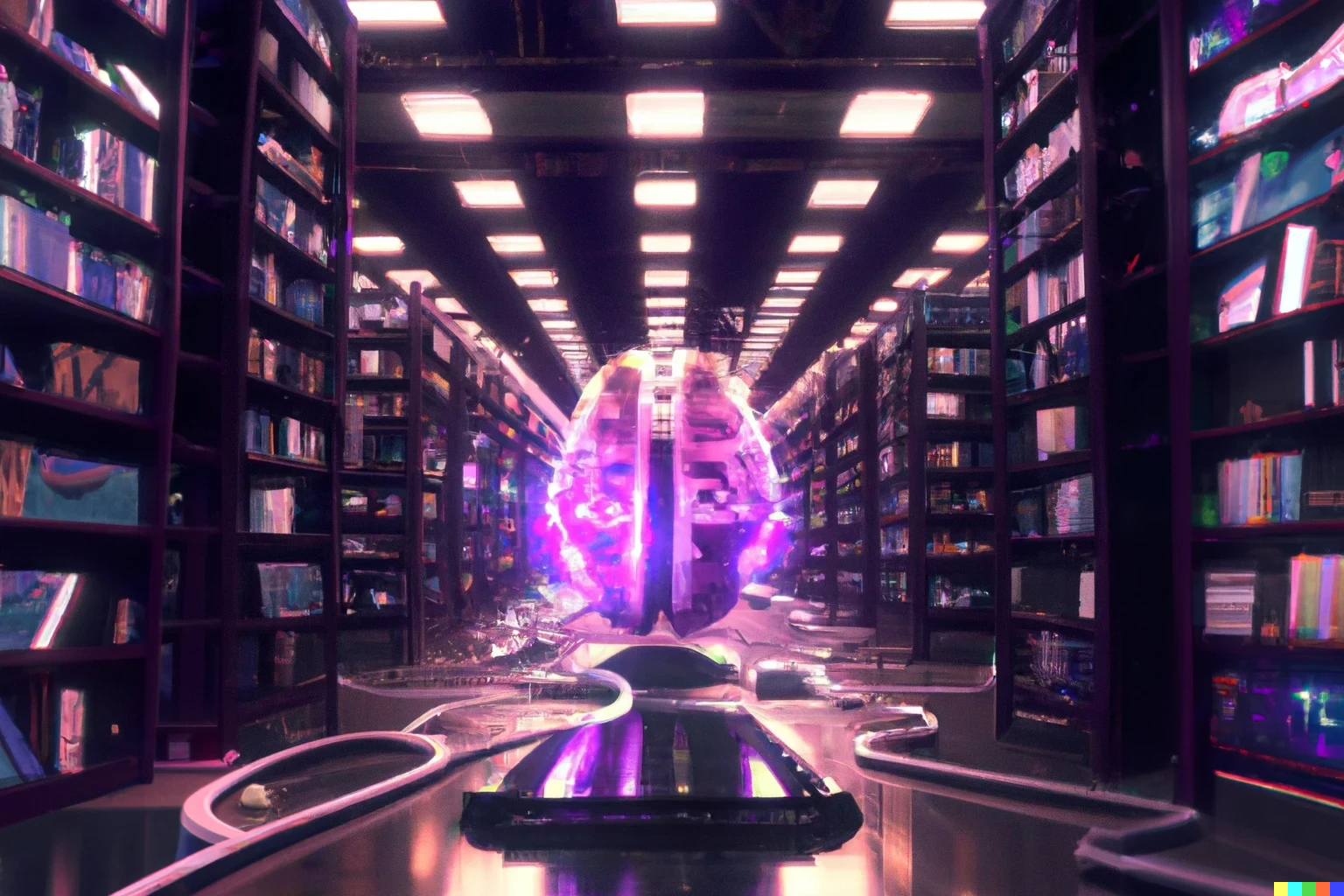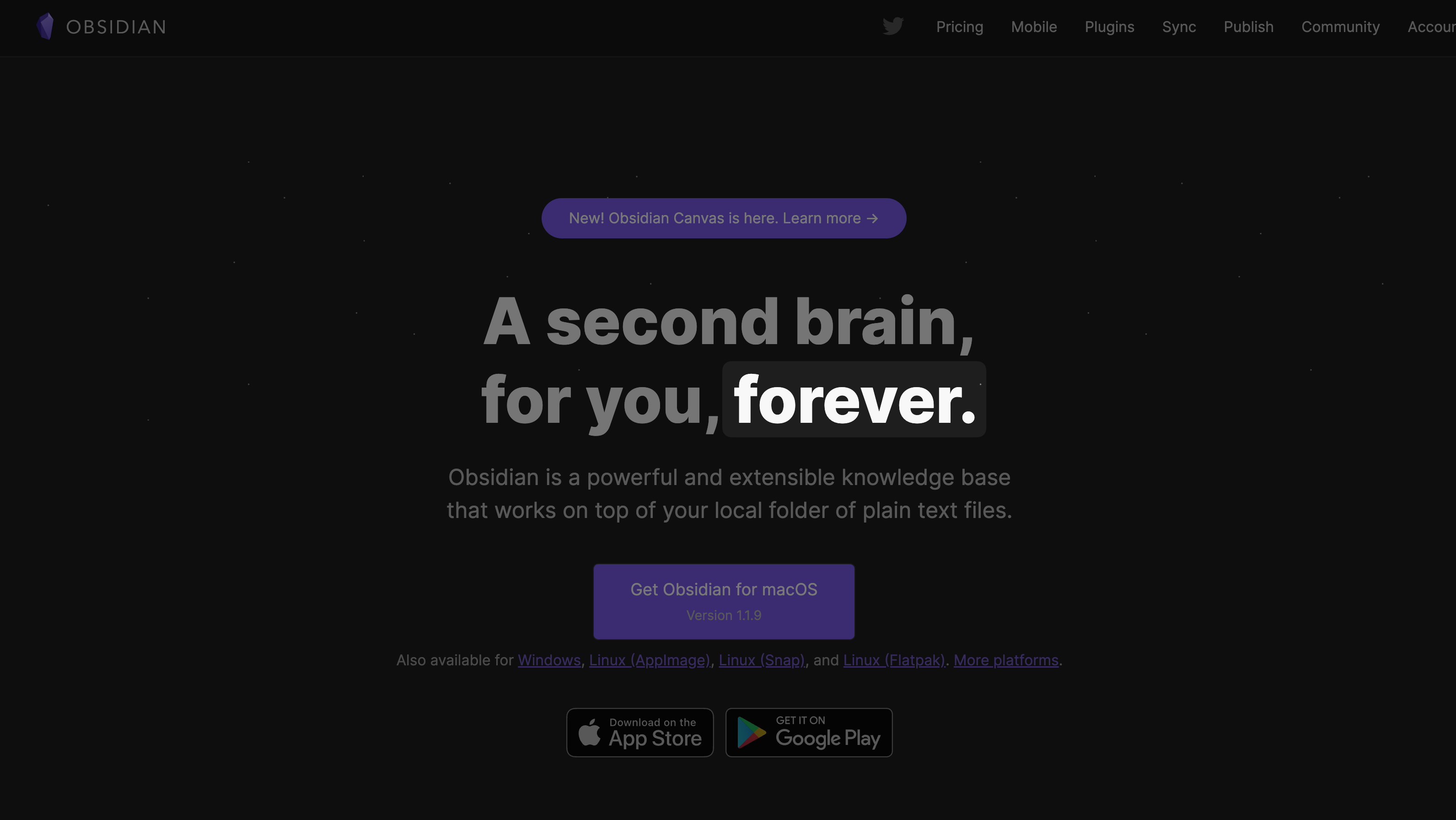Building a first brain
Mar 3, 2023
Why building a second brain is a sophisticated way of procrastination.

The building a second brain trend has gained popularity in recent years. Productivity experts like Tiago Forte promote the idea of creating a personal knowledge management system to help you organize your life, be more creative and increase your overall productivity.
In this article, I will discuss why you should probably ditch the whole “build a second brain” thing and talk about what you should do instead.
I know this is an unpopular opinion
So, let's start by finding common ground
I feel you bro
If you are like me, you follow content creators in different media channels. Creators who produce videos, podcasts, and books that you find valuable. At the same time, they reference other creators who produce valuable content. This never-ending cycle ends up creating an infinite set of potentially valuable content.
Hopefully, your life is not only about consuming other people content. You have friends, hobbies and work to get done. In the face of this complexity, you start searching for a way to become more organized and productive.
So, you start listening to some productivity experts that claim to have a system for organizing your whole life. A system to process all your life information and use it as efficiently as possible. The fear of missing out starts to creep in.
This whole situation is pretty anxiety-inducing. I feel like I have infinite projects I want to work on, an infinite list of content to consume, and a limited time and energy to do it all. Cherry on top, it seems like other people know how to perfectly organize their lives and here I am, struggling to organize my to-do list.
How I am going to deal with the infinite if I don’t even know how to organize a checklist?
As Oliver Burkeman pointed out in his brilliant book, humans tend to feel deeply uncomfortable facing finitude. And who wouldn’t? Again, if you are like me, you love to learn new stuff and the prospect of not being able to learn everything ever created feels frightening.
Sadly, instead of fully embracing this feeling, we start seeking ways of distracting ourselves. We start fooling ourselves by thinking we can become infinitely efficient.
 Hero section of the Obsidian website
Hero section of the Obsidian website
An infinite solution
One way to solve this situation is to create a “second digital brain”, a system that can process any information as efficiently as possible.
I have to admit that the name of this system is brilliant. The brain is an information-processing organ. The problem with organs is that they have flaws that computers don’t. For example, your first brain organizes information unpredictably and has memory leaks. By contrast, your digital brain can organize notes in clearly defined folders and back them up in the cloud forever.
Just by reading this previous paragraph, one could think that building a second brain is a great idea. Sure, you may not be infinite, but why not build an efficient system to process that information? At the end of the day, you are finite, may as well use your time as efficiently as possible, right?
Yes, of course, you want to optimize your time
Awesome! It turns out we agreed all of this time
Wait, before you leave I have a question for you
Better be quick. I have notes to link and organize
Is this system really working for you?
Listening to your heart
This is the point of the article where you need to be honest with yourself. Are you spending most of your time choosing tools, tweaking them, organizing notes, changing tools, searching courses for better note-taking, changing tools again, and feeling paralyzed because you don’t have a good enough system? Is this whole “second brain” thing a way of procrastination?
If your answer is no, then you can leave this article right now. You don’t need my help. I’m truly happy that you have built a system that works for you.
But, if you are like me, most likely your answer would be a painful yes. I feel that pain. I’ve tried every tool, methodology, system, and course out there just to feel more overwhelmed and helpless than before.
An uncomfortable solution
I’m going to present you an uncomfortable solution. This solution will not be easy at the start, but if you go through that initial discomfort, you will find it tremendously liberating at the end. It won’t be a permanent fix since you will still find ways to trick yourself into thinking that you could be doing things better.
The solution is simple.
Just... let it go.
That’s it. Realize that you don’t need any system. Most of the people you admire, the greatest minds of history, did not have any generalized digital productivity system. Most of them just read a ton of books, took some notes, and pursued the creation of things that made them the type of person you can admire a hundred years later.
But… but what about taking notes? I’ve heard they improve retention. Also, those people didn’t have computers, but now, now I can take advantage of the internet because…
STOP. Take a deep breath. In and out.
Everything you are saying is good but stop for a moment and realize that you don’t need it
My intention with this article is not to discourage you from taking notes, saving interesting quotes, or using any particular system. What I am telling you is that the system is not the goal. I’m saying that you are using this whole thing as a sophisticated way of procrastination.
Just start reading that book, writing that article, or doing whatever you don’t feel prepared to do now. It will feel uncomfortable but embrace the challenge. Once you start doing something other than building a system, you will find out what you actually need. Maybe you realize that highlighting some parts of a book to later review them is just enough. Perhaps taking notes after reading a chapter helps you engage better with the content. Or maybe, just maybe, you find out that you can start reading the next book on the list without any regrets.
Who knows, maybe I’m wrong and I’m missing a lot of benefits by not building a second brain. If you decide to build it after all, I wish you the best.
Meanwhile, I will spend time building my first brain, the one who wrote this and the one that will die with me.